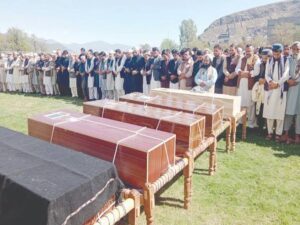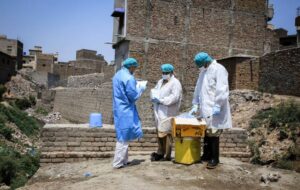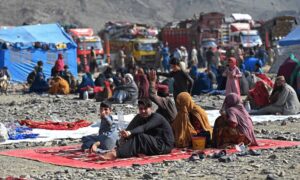PESHAWAR — Action in Aid of Civil Power Regulations has once again ignited a fierce debate in Khyber Pakhtunkhwa (KP).
In a letter that has stirred renewed debate over civil liberties in KP, senior advocate Shabbir Hussain Gigyani, a founding member of Pakistan Tehreek-e-Insaf (PTI) and a respected legal authority, has called on the PTI leadership to withdraw its appeal from the Supreme Court of Pakistan.
The appeal challenges a 2019 decision by the Peshawar High Court (PHC) that nullified the controversial Action in Aid of Civil Power Regulations—a law widely condemned for its draconian provisions and its impact on civil rights.
The regulation, originally enforced through an ordinance in 2011 during the Pakistan Peoples Party era in the erstwhile Federally Administered Tribal Areas (FATA) and Provincially Administered Tribal Areas, granted sweeping powers to security forces, including the authority to detain individuals indefinitely in internment centers without due process.
These centers, shrouded in secrecy, have long been symbols of oppression, housing thousands of detainees whose fates remain uncertain.Following the merger of FATA with KP in 2018, the Action in Aid of Civil Power Regulations was abolished, raising hopes for a new era of accountability and justice. However, in 2019 the PTI-led provincial government reintroduced the regulations through a bill and subsequently implemented it as an ordinance by the Governor.
This move sparked widespread condemnation from human rights organizations, legal experts, and civil society, who viewed the reintroduction as a step backward in the fight for fundamental rights. A turning point came later that year when a two-member bench of the PHC, led by the late Chief Justice Waqar Ahmed Seth, delivered a historic judgment.
The court not only struck down the Action in Aid of Civil Power Regulations but also declared the internment centers illegal. In an unprecedented decision, the court ordered that the centers be removed from the custody of security forces and transferred to the Inspector General of Jail Departments.
The ruling was hailed as a victory for human rights and a major step toward restoring the rule of law in the region.Despite the PHC’s judgment, the PTI provincial government proceeded to file an appeal in the Supreme Court seeking to overturn the judgment.
In his strongly worded letter addressed to the provincial government, the founding PTI member, and the central and provincial PTI presidents, Advocate Gigyani criticized the move. He argued that the regulation has not only undermined civil liberties but has also perpetuated a system of injustice that continues to tear apart families and communities. “These regulations are a tain on our legal and moral conscience,” Advocate Gigyani wrote. “Its enforcement has led to the detention of thousands without trial, tearing apart families and communities.
The PHC’s decision was a beacon of hope, and it is imperative that we uphold it.”Gigyani’s call to retract the Supreme Court appeal has reignited a broader debate over accountability and the rule of law in Khyber Pakhtunkhwa. Despite the PHC ruling, the internment centers remain operational—a fact that has come under even sharper scrutiny following reports that, after the events of May 9, even PTI members have felt the law’s far-reaching and unpredictable impact.
The legacy of Chief Justice Waqar Ahmed Seth’s 2019 judgment looms large in this debate. Known for his commitment to justice, Seth’s decision repudiated the Action in aid of Civil Power Regulation and the system of internment centers it enabled.
Although his untimely passing in 2020 left a void in Pakistan’ judiciary, his landmark ruling continues to inspire advocates for justice in the region.
Also Read:
Inheritance courts to tackle case backlogs in Khyber Pakhtunkhwa












